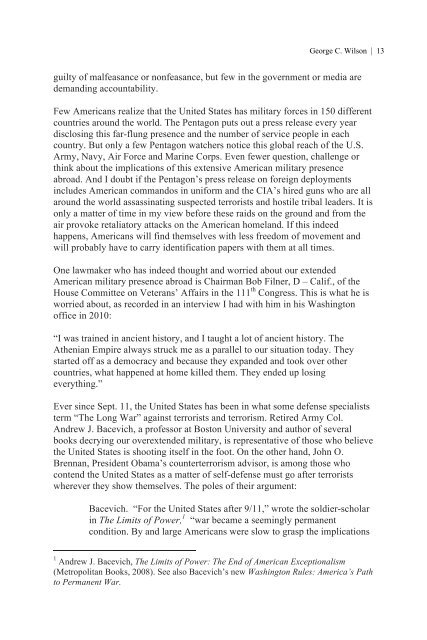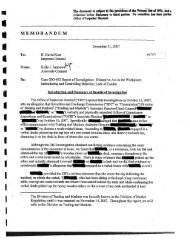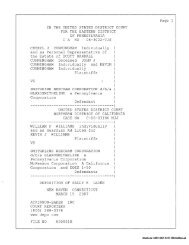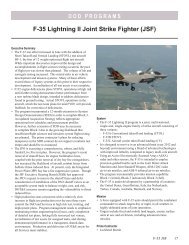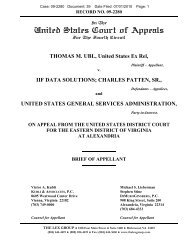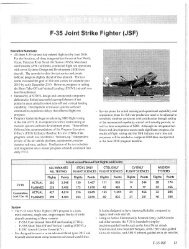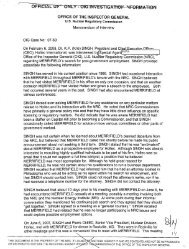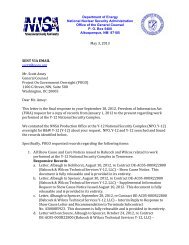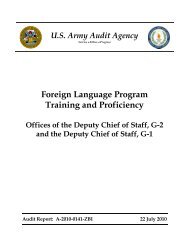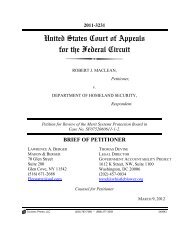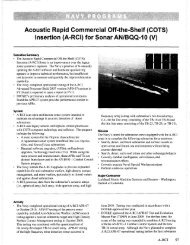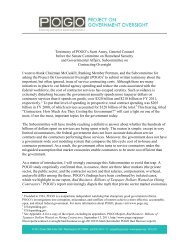The Pentagon Labyrinth
The Pentagon Labyrinth
The Pentagon Labyrinth
Create successful ePaper yourself
Turn your PDF publications into a flip-book with our unique Google optimized e-Paper software.
George C. Wilson | 13<br />
guilty of malfeasance or nonfeasance, but few in the government or media are<br />
demanding accountability.<br />
Few Americans realize that the United States has military forces in 150 different<br />
countries around the world. <strong>The</strong> <strong>Pentagon</strong> puts out a press release every year<br />
disclosing this far-flung presence and the number of service people in each<br />
country. But only a few <strong>Pentagon</strong> watchers notice this global reach of the U.S.<br />
Army, Navy, Air Force and Marine Corps. Even fewer question, challenge or<br />
think about the implications of this extensive American military presence<br />
abroad. And I doubt if the <strong>Pentagon</strong>’s press release on foreign deployments<br />
includes American commandos in uniform and the CIA’s hired guns who are all<br />
around the world assassinating suspected terrorists and hostile tribal leaders. It is<br />
only a matter of time in my view before these raids on the ground and from the<br />
air provoke retaliatory attacks on the American homeland. If this indeed<br />
happens, Americans will find themselves with less freedom of movement and<br />
will probably have to carry identification papers with them at all times.<br />
One lawmaker who has indeed thought and worried about our extended<br />
American military presence abroad is Chairman Bob Filner, D – Calif., of the<br />
House Committee on Veterans’ Affairs in the 111 th Congress. This is what he is<br />
worried about, as recorded in an interview I had with him in his Washington<br />
office in 2010:<br />
“I was trained in ancient history, and I taught a lot of ancient history. <strong>The</strong><br />
Athenian Empire always struck me as a parallel to our situation today. <strong>The</strong>y<br />
started off as a democracy and because they expanded and took over other<br />
countries, what happened at home killed them. <strong>The</strong>y ended up losing<br />
everything.”<br />
Ever since Sept. 11, the United States has been in what some defense specialists<br />
term “<strong>The</strong> Long War” against terrorists and terrorism. Retired Army Col.<br />
Andrew J. Bacevich, a professor at Boston University and author of several<br />
books decrying our overextended military, is representative of those who believe<br />
the United States is shooting itself in the foot. On the other hand, John O.<br />
Brennan, President Obama’s counterterrorism advisor, is among those who<br />
contend the United States as a matter of self-defense must go after terrorists<br />
wherever they show themselves. <strong>The</strong> poles of their argument:<br />
Bacevich. “For the United States after 9/11,” wrote the soldier-scholar<br />
in <strong>The</strong> Limits of Power, 1 “war became a seemingly permanent<br />
condition. By and large Americans were slow to grasp the implications<br />
1 Andrew J. Bacevich, <strong>The</strong> Limits of Power: <strong>The</strong> End of American Exceptionalism<br />
(Metropolitan Books, 2008). See also Bacevich’s new Washington Rules: America’s Path<br />
to Permanent War.


